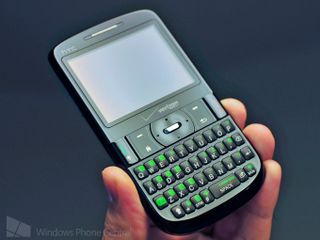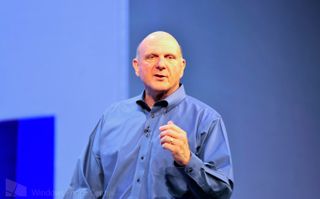Ballmer regrets not redeploying more talent to Windows Mobile in early 2000s
For Microsoft, Windows Vista took priority over Mobile. Years later, Steve Ballmer regrets that decision.

As Microsoft’s 2013 Financial Analyst Meeting wraps up, outgoing CEO Steve Ballmer fielded questions from the audience of investors about the company. In responding to one inquiry about Microsoft, its direction and reorganization, Ballmer had an interesting confession regarding the last decade at Microsoft.
Although Ballmer has previously acknowledged that Vista was something he wished he handled differently, in tonight's response he was even more specific. Ballmer regrets not putting more resources into what was then Windows Mobile. Instead, the company had invested its talent and resources into Vista, an OS that would forever blemish the reputation of the company.
It would also cause Microsoft to miss the mobile explosion just a couple years later.

Ballmer gets candid during a Q&A
Ballmer’s response during the Financial Analyst Meeting:
“If there's one thing I guess you would say I regret, I regret that there was a period in the early 2000s when we were so focused on what we had to do around Windows that we weren't able to redeploy talent to the new device called the phone. That is the thing I regret the most. The time we missed is the time we were working on what became Vista and I wish we had resources slightly differently deployed. It would have been better for Windows and our success in other form factors.”
Indeed, Windows Mobile (and Windows Pocket PC before that) was way ahead of its time. Back in 2002, it was Dell leading the way with the Axim X5. That device was spec’d with a 300 MHz Intel XScale processor, 32 MB RAM, 32 MB flash ROM, a Type II CompactFlash slot, an SD/MMC slot, a 16-bit QVGA (240 × 320 dots) TFT. Cost? $279. While that device and subsequent Axims and iPaqs that came after it remained a niche, it was clearly the future and Microsoft at the time owned the market.
Microsoft spent only a little time and money with Windows Mobile in subsequent years, going through a few iterations and stumbling around with non-touch versions of the OS. While the phones at the time were impressive, it was Apple’s iPhone that made that industry take off due to its appeal to the masses. Unfortunately at the time, Ballmer famously mocked Apple, noting that they welcomed the challenge and that the iPhone was “not a smartphone”. Ironically, Apple is doing very well years later and it is now Microsoft who is scrambling to catch up.
Get the Windows Central Newsletter
All the latest news, reviews, and guides for Windows and Xbox diehards.
There is no argument that Microsoft had missed an opportunity. They focused on desktop when they should have seen mobile as the next big thing. Will they be able to improve? We sure hope so.

Daniel Rubino is the Editor-in-chief of Windows Central. He is also the head reviewer, podcast co-host, and analyst. He has been covering Microsoft since 2007, when this site was called WMExperts (and later Windows Phone Central). His interests include Windows, laptops, next-gen computing, and watches. He has been reviewing laptops since 2015 and is particularly fond of 2-in-1 convertibles, ARM processors, new form factors, and thin-and-light PCs. Before all this tech stuff, he worked on a Ph.D. in linguistics, watched people sleep (for medical purposes!), and ran the projectors at movie theaters because it was fun.
